I spent 4 days in Athens, Greece. Here are 10 things that were worth it and 5 I'd skip next time.
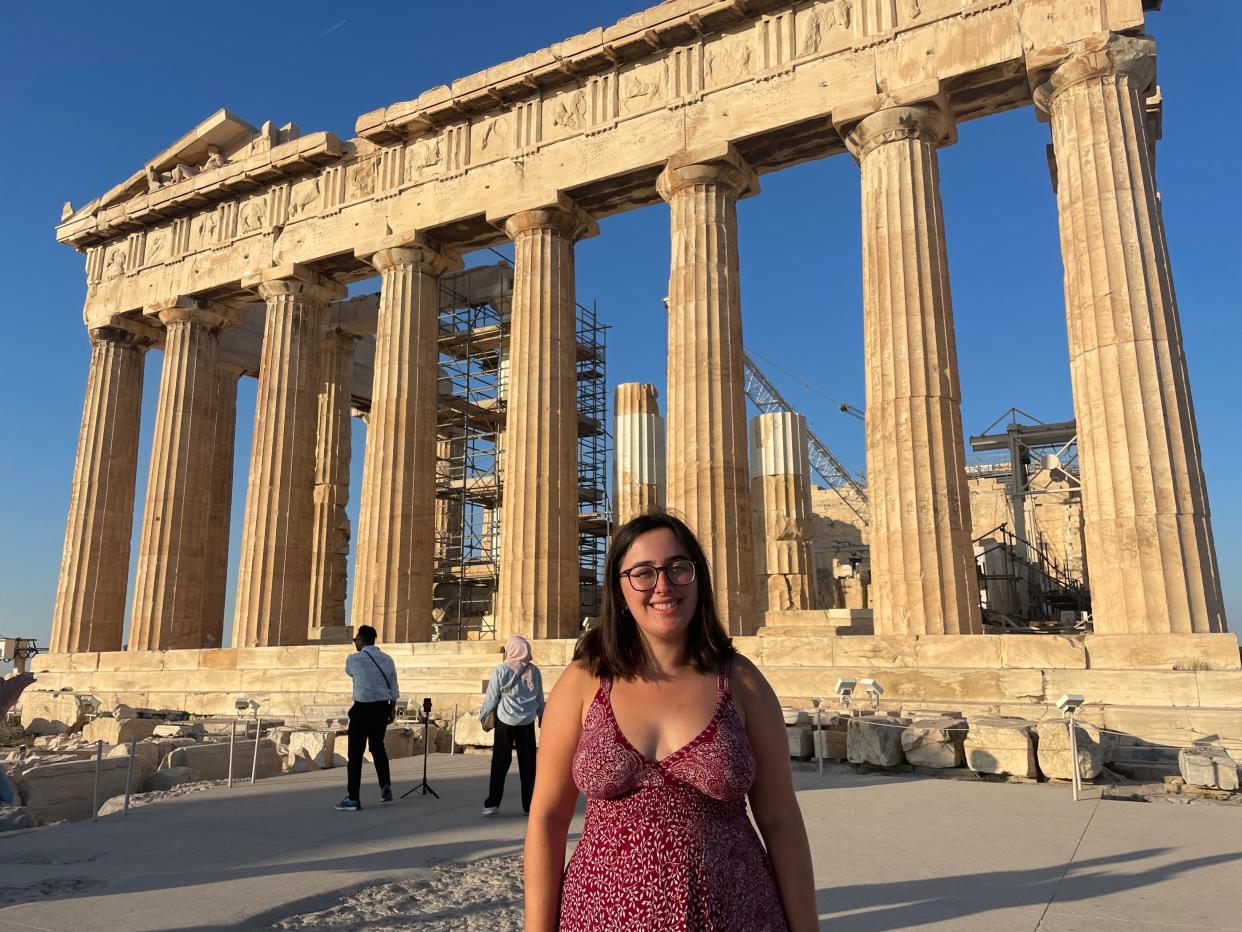
I recently spent four days in Athens, Greece, while traveling around Europe.
Stumbling upon the National Garden was a great treat, and I loved learning about the Acropolis.
On the other hand, I'm not sure the Roman Agora or Hadrian's Library are worth a visit.
In October, I traveled to Athens, Greece, for the first time since I was 18 months old.
I spent four days exploring some of the city's amazing landmarks and sites. But even though I didn't pay for all of the attractions — because some are free for EU citizens 25 and under — there are a few I wouldn't spend time on again.
The Greek city just made Delta Air Line's list of most-searched summer destinations for 2024, so if you're currently planning a trip, here's everything that was worth the time and money and the few things I'd skip on my next trip.
I was glad I happened upon Athens National Garden.
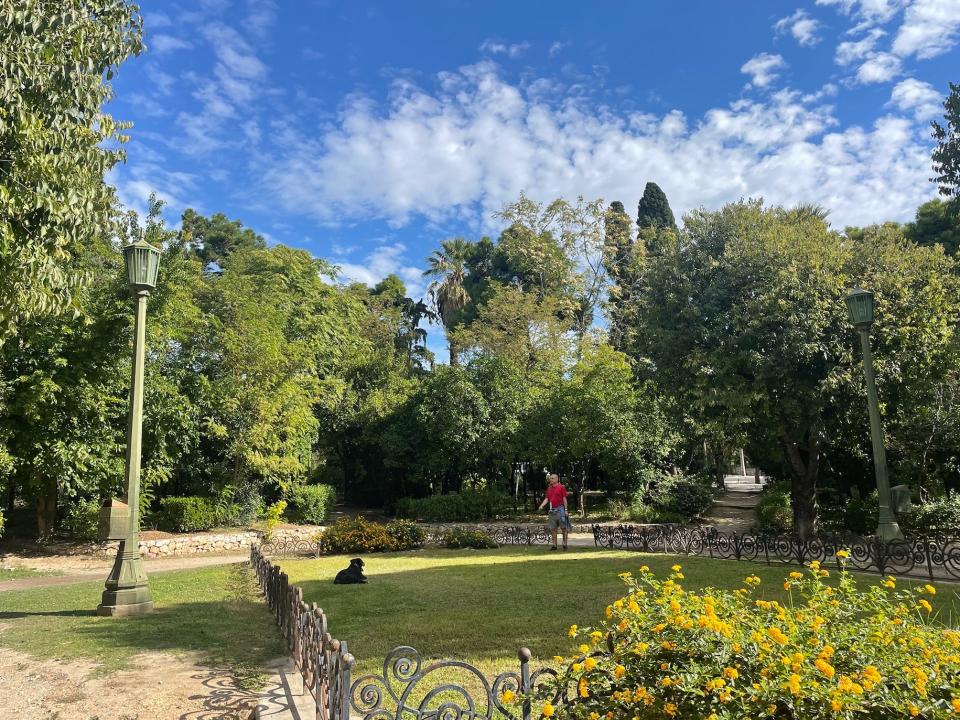
I happened upon the National Garden kind of by accident when I was looking for some green space to run in. It's completely free and perfect for a walk, jog, or run.
The space is very peaceful and also has ponds with lots of turtles. I ended up going back a few days later to sit and read in the shade.
The Acropolis is definitely worth it, especially in the morning.
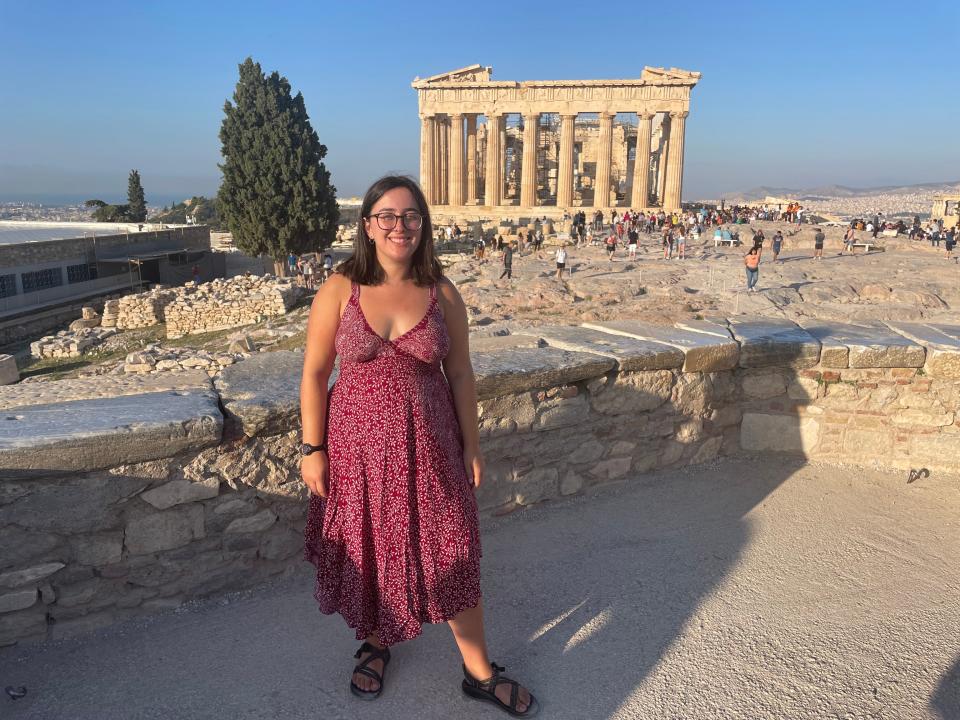
The Acropolis, which I'd consider the main tourist attraction in Athens, is a must-visit.
The citadel contains several ancient buildings, most notably the Parthenon. I was told to start waiting in line around 7:30 a.m. (it opens at 8), and it was well worth the time and effort.
It got busy — and hot — really quickly. I couldn't imagine going any later, and I ended up being able to take a nap afterward anyway.
I wasn't too sure about Mount Lycabettus, but the views won me over.

I planned to go to Mount Lycabettus (the highest point in Athens) for sunset one night. I thought I'd allotted enough time, but everyone seemed to have the same idea since there was a huge line when I arrived.
Truthfully, I was a bit disappointed by the tram ride, and when I got to the top, I was overwhelmed by how many people there were. But the view made it worth it.
I ended up staying for dinner and had a delicious meal of Greek salad, moussaka, and white wine for about $16.
I'm so glad I paid to run along the track at Panathenaic Stadium.
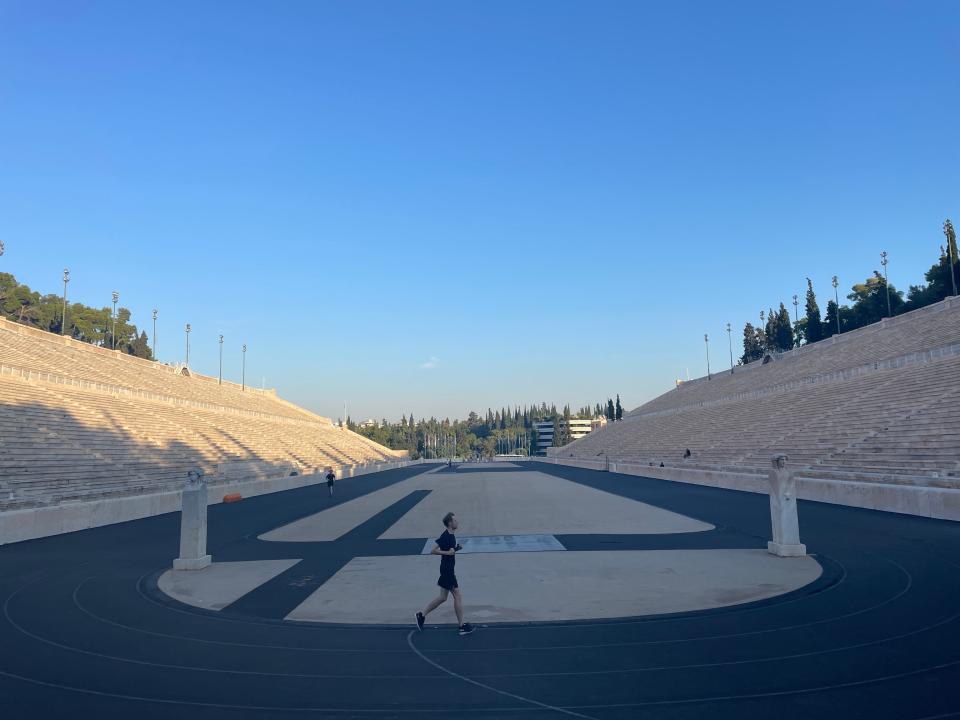
The stadium is cool on its own — it dates back to 600 BC and is the only marble stadium in the world. But I went early in the morning, during the designated running hours of 7:30 to 9 a.m., and got to run around the track.
It's only about $10 to enter (I paid the student price of $5), and it was one of my favorite things I did on the trip.
Kerameikos Archaeological Site is one of the coolest cemeteries I've ever seen.
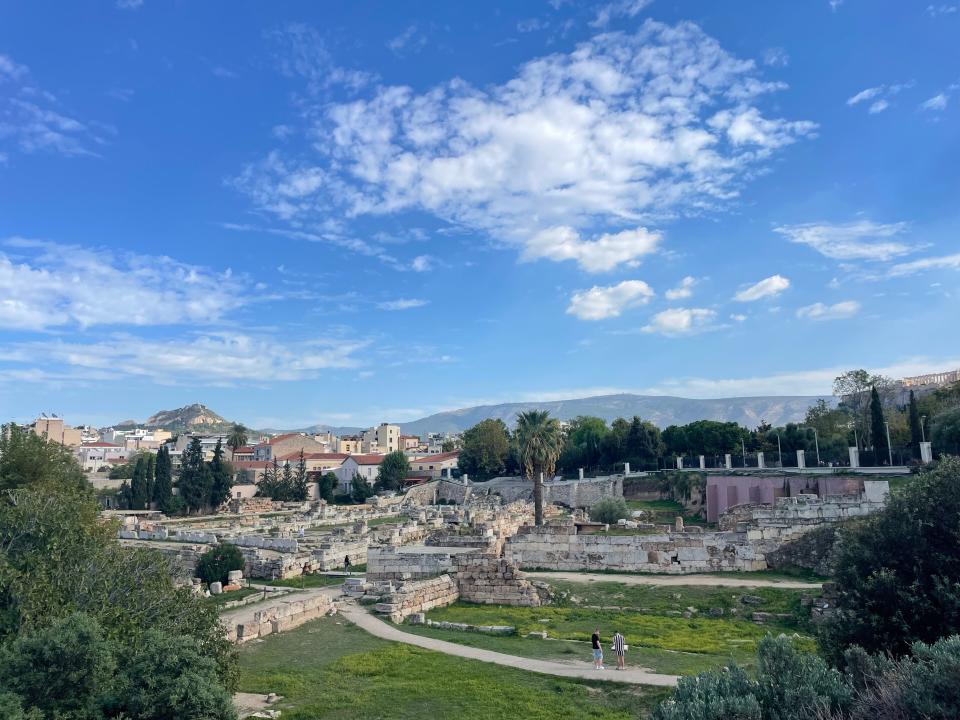
I had pretty low expectations going in having seen my fair share of cemeteries, but I was pleasantly surprised by this one.
The tombstones were pillar-shaped, and there were great views of the Parthenon.
If you're doing the Acropolis, make sure to swing through Plaka afterward.
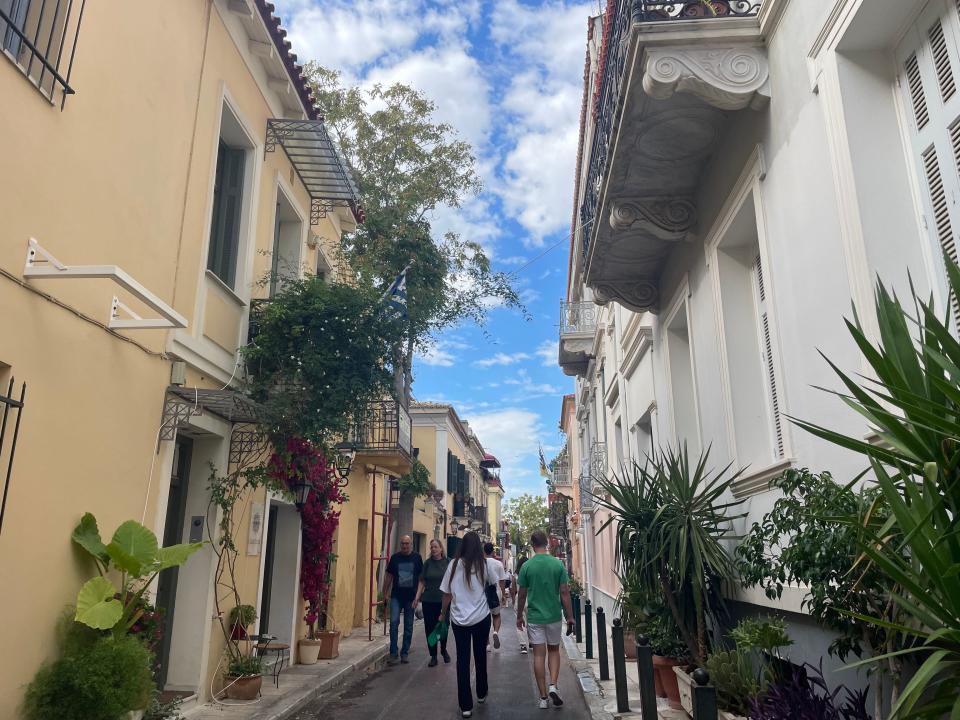
It's worth walking around the neighborhood surrounding the Acropolis.
There are great taverns with traditional Greek food and places to buy all the souvenirs your heart desires. I really enjoyed wandering around and exploring some of the picturesque side streets.
Even after seeing the real deal, I got a lot out of the Acropolis Museum.
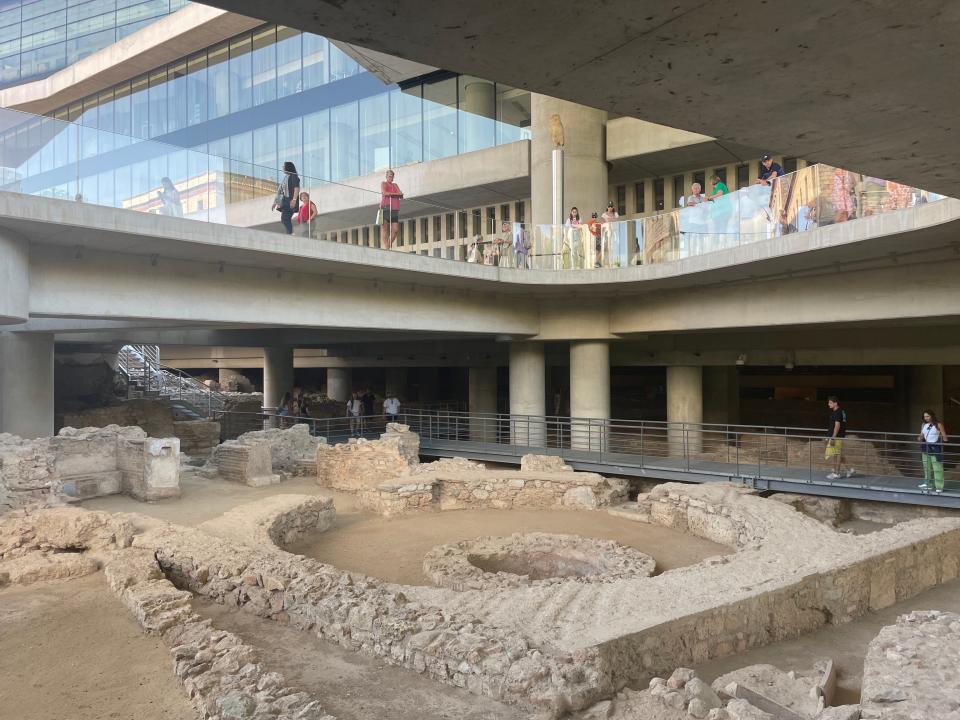
I'm not usually a big museum person, but the Acropolis Museum is definitely worth a visit.
I went after I'd already seen the landmark, and it gave me good context. It houses many artifacts that were excavated from the site, and beneath the museum is an in-progress excavation of ancient Athens.
Areopagus Hill provided stunning views for free.
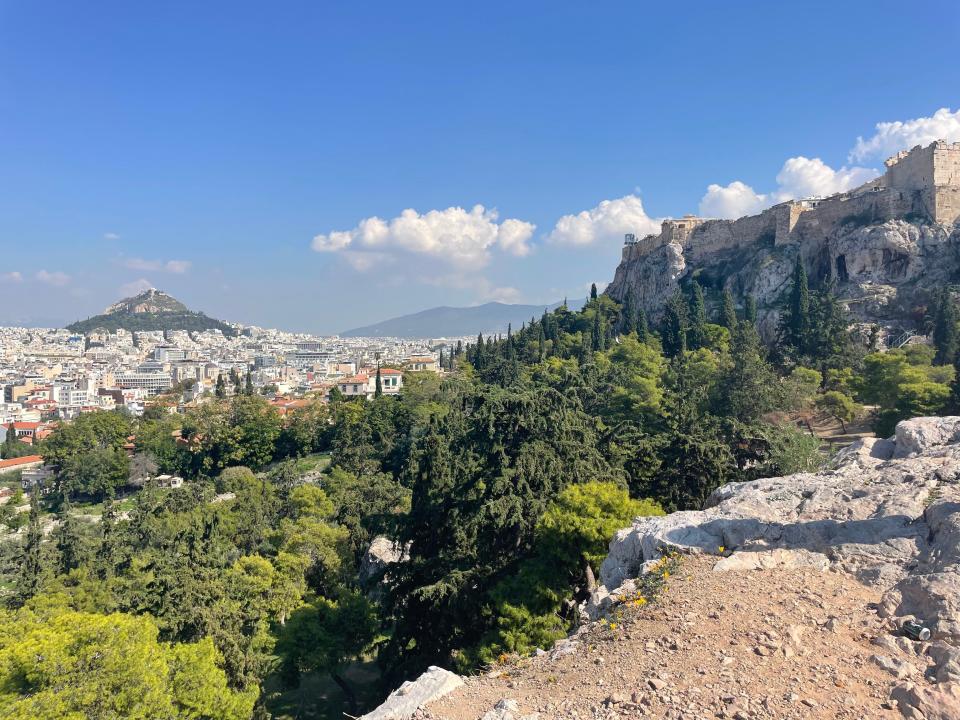
Behind the Acropolis is a prominent rock outcropping. It can be a slippery and steep walk up, but the views of the Acropolis and the surrounding area are breathtaking.
Entrance to the hill and its surrounding park is also completely free.
I could feel the history at the Ancient Agora of Athens.
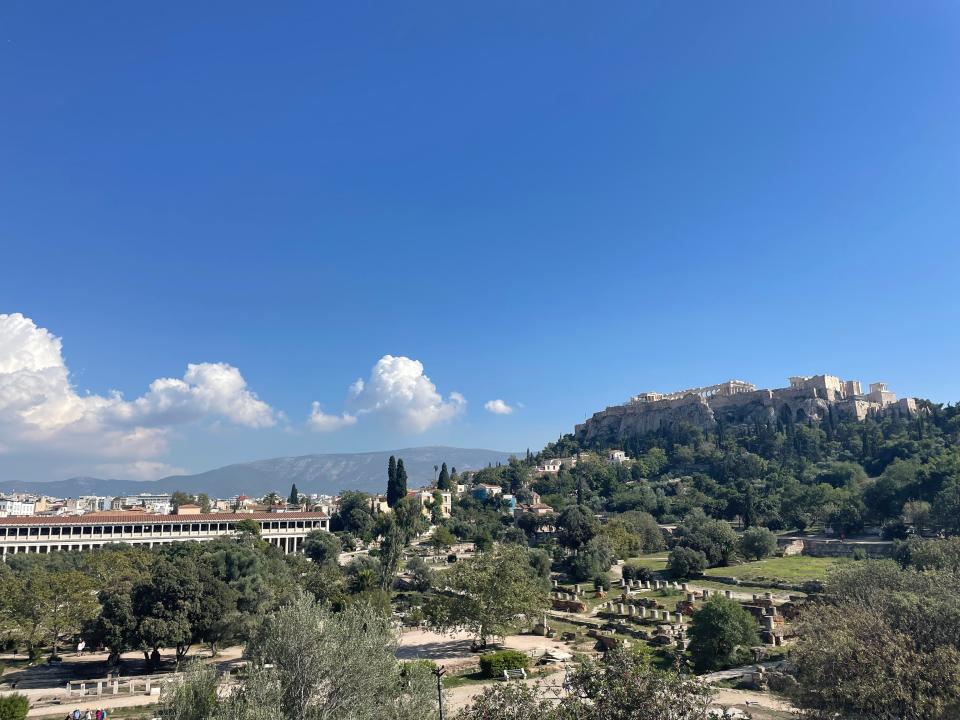
The Athenian Agora is one of the best-known examples of a traditional Greek meeting place. It had great views of the Acropolis and was beautifully adorned with trees and other ruins.
I was especially impressed by how well the Temple of Hephaestus was preserved. There's also a museum, and the second floor has a nice balcony where you can look out over the agora
I'm glad I swung by the Tomb of the Unknown Soldier.
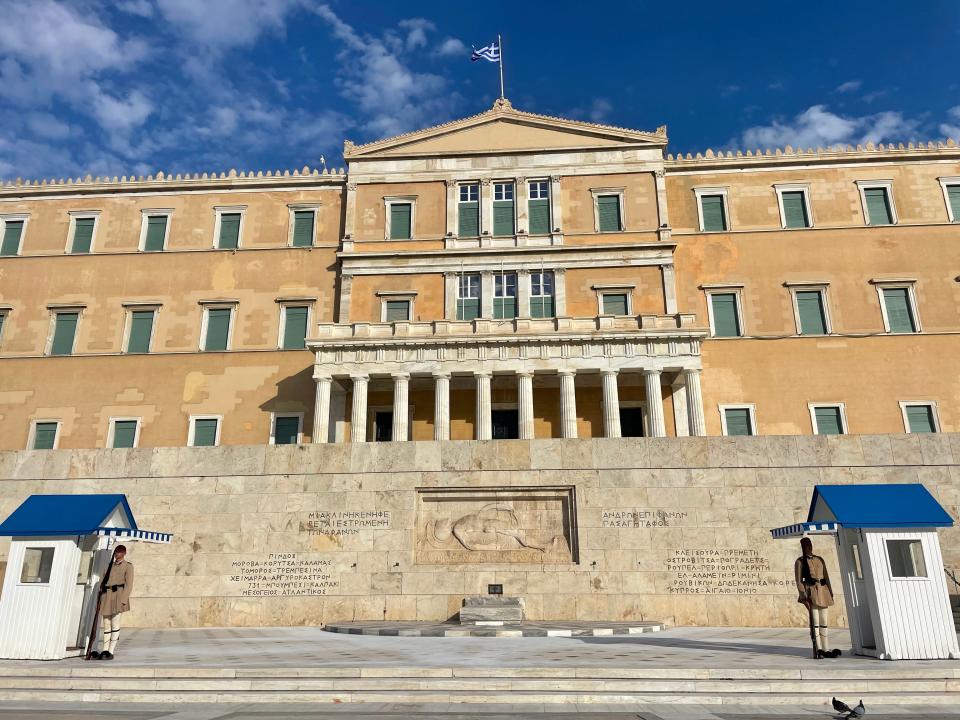
Many of the attractions in Athens date back centuries, but the tomb is much more contemporary.
Dedicated to Greek soldiers killed in war, the tomb itself is visually quite simple. But there are guards that stand in traditional garb, which reminded me of Buckingham Palace.
It's also pretty central — right next to the National Garden — so I didn't have to go out of the way to see it.
Next time, I'd skip Monastiraki Flea Market and shop in Plaka instead.
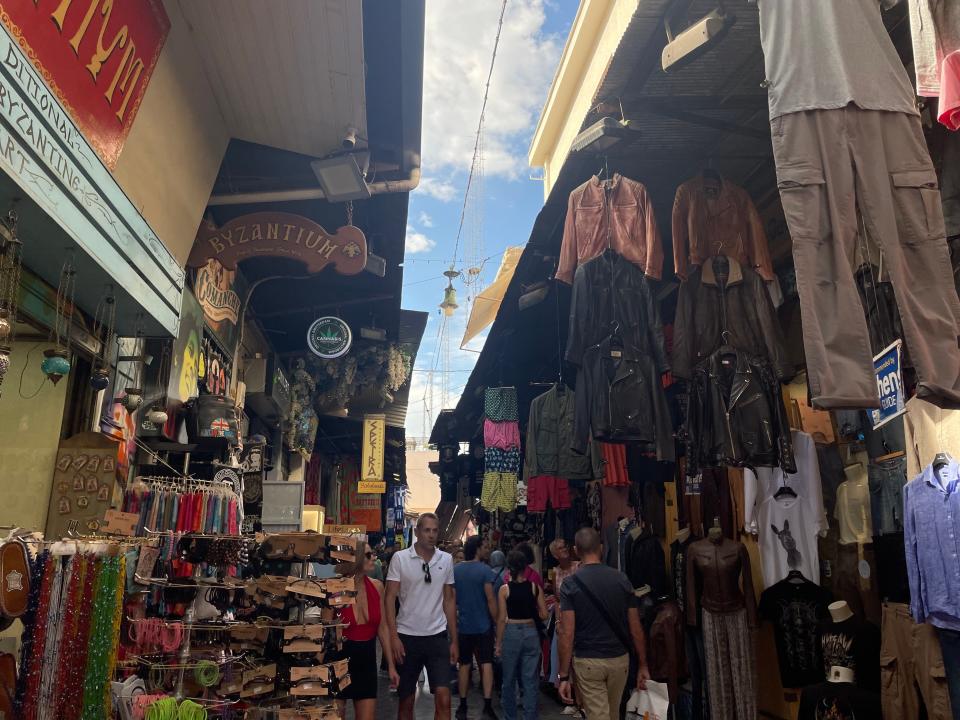
I was excited to go to a flea market but was quite disappointed to find that this one didn't sell anything much different than the rows of stores in Plaka.
I will say that the square near the market had good views of the Parthenon, but I was able to see similar angles from other places in the city.
After seeing the Athenian Agora, I'd skip the Roman Agora on future trips.
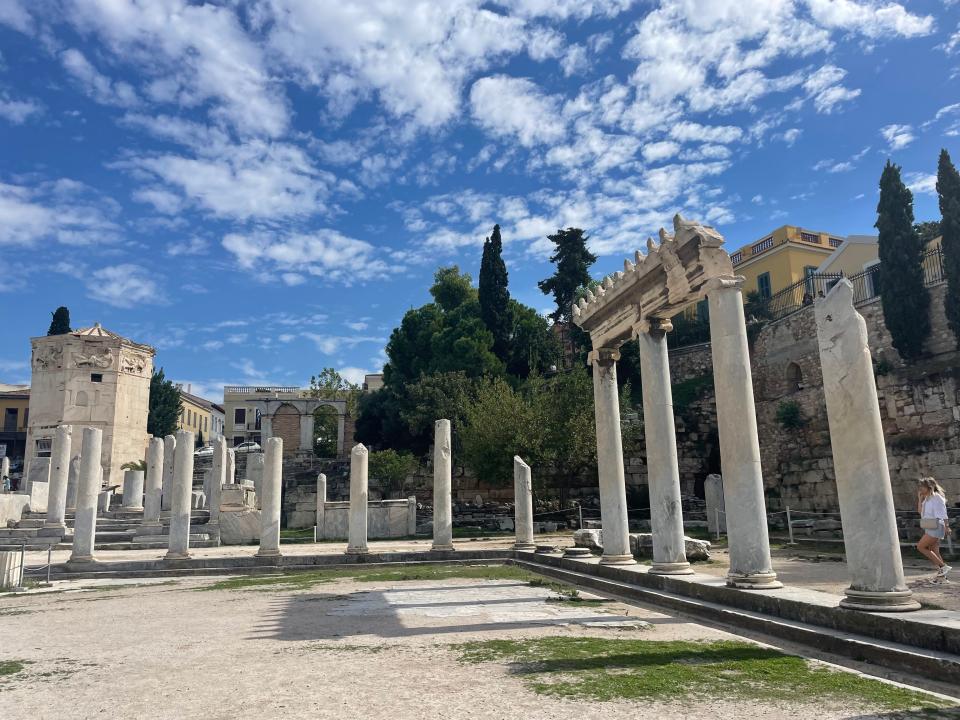
In contrast to the Athenian Agora, the Roman version wasn't much to write home about.
The gate at the front is kind of cool, but I think could just look from the outside instead of wasting time going in.
Hadrian's Library didn't wow me.
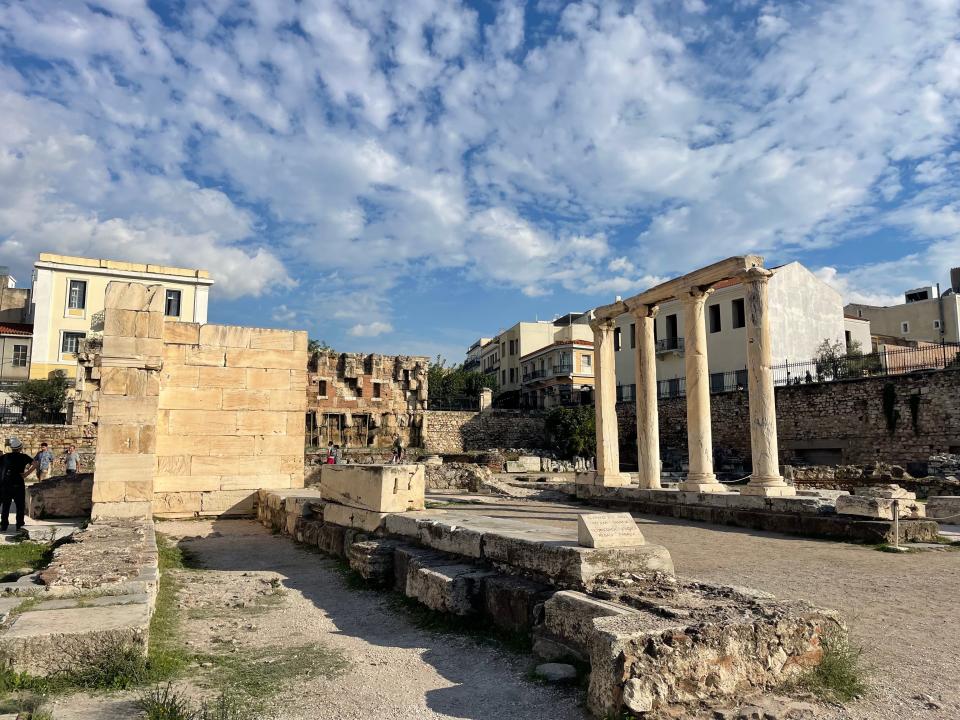
I didn't find the "library" all that special.
The ruin isn't really a building, just pillars. And like the Roman Agora, you could easily just peek through the gates to get a good sense of the place.
I wanted to love the Temple of Zeus, but I was a little underwhelmed.
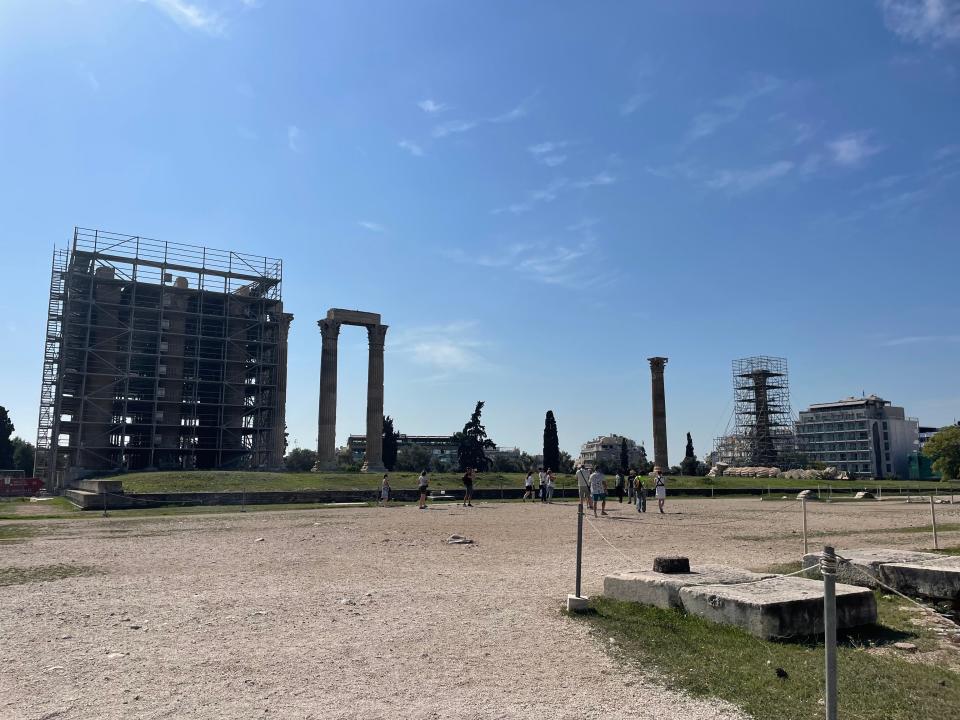
I was excited to see a temple devoted to the King of the Gods, but it was kind of disappointing.
To be fair, the temple was under construction when I went. But I felt that there wasn't a ton to look at regardless.
The Lyceum of Aristotle isn't all that exciting and it's far from everything else.
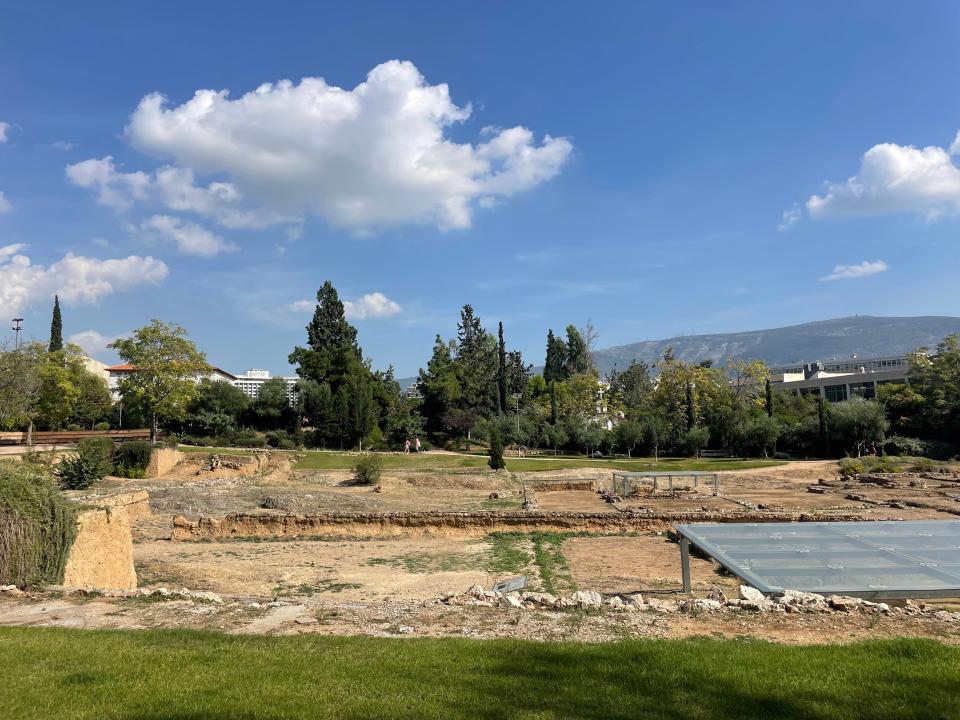
The original lyceum was destroyed. All that's left of it is a few ruins that were discovered about 30 years ago.
It's relatively new since it wasn't opened to the public until 2009, but I felt like it wasn't worth the walk since it was far from most of the other landmarks.
This story was originally published on November 12, 2023, and most recently updated on May 1, 2024.
Read the original article on Business Insider

 Yahoo News
Yahoo News 
